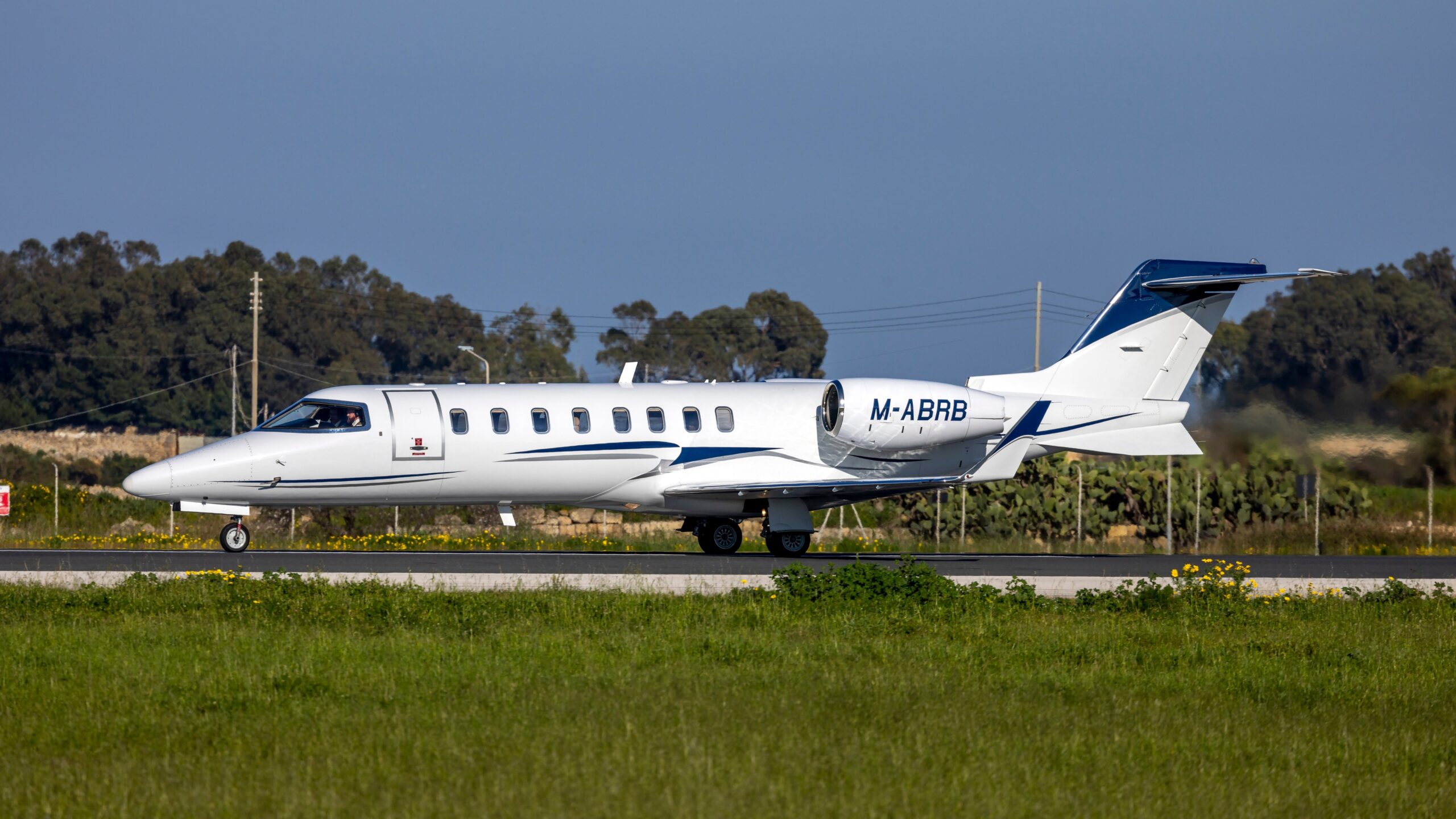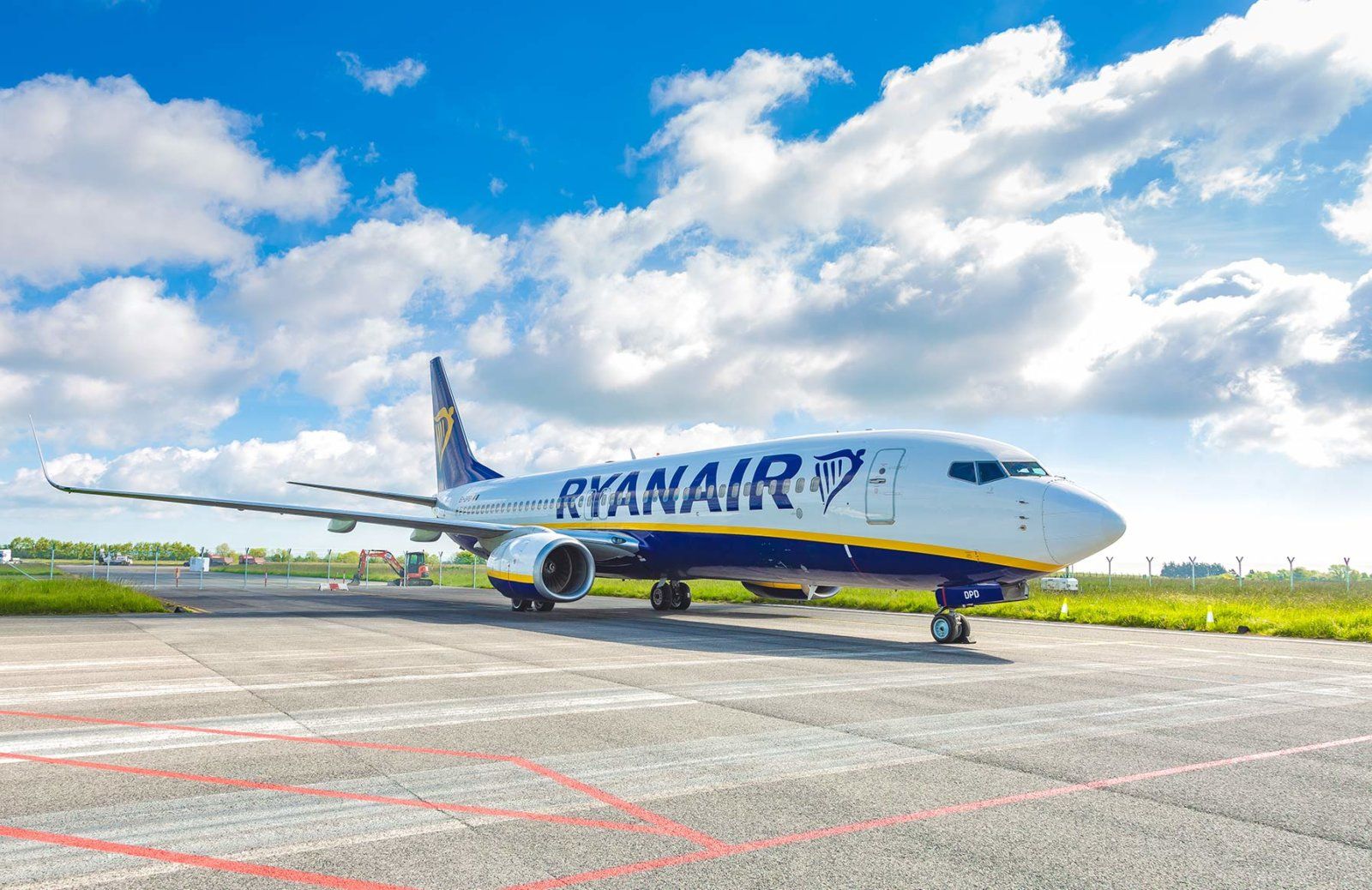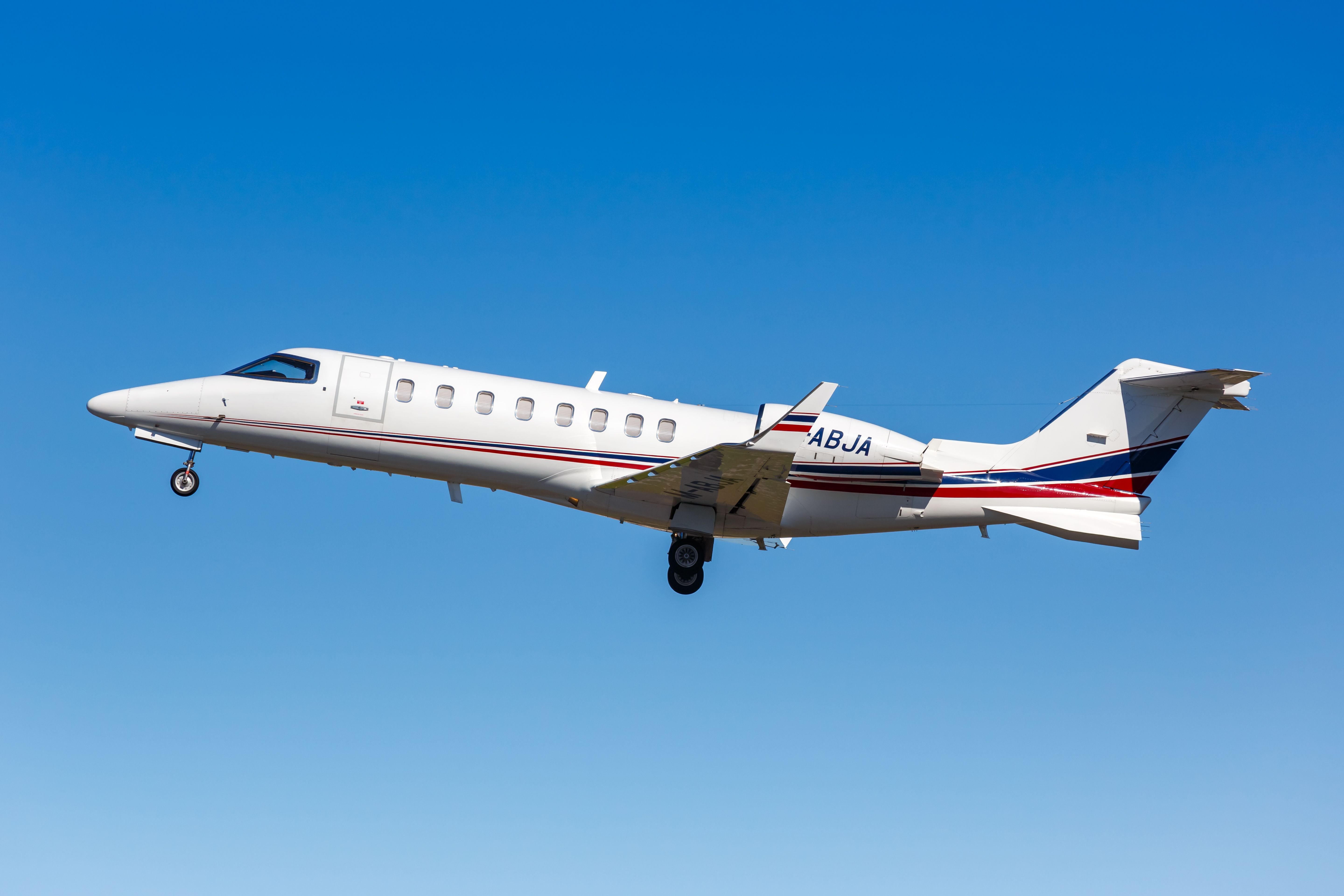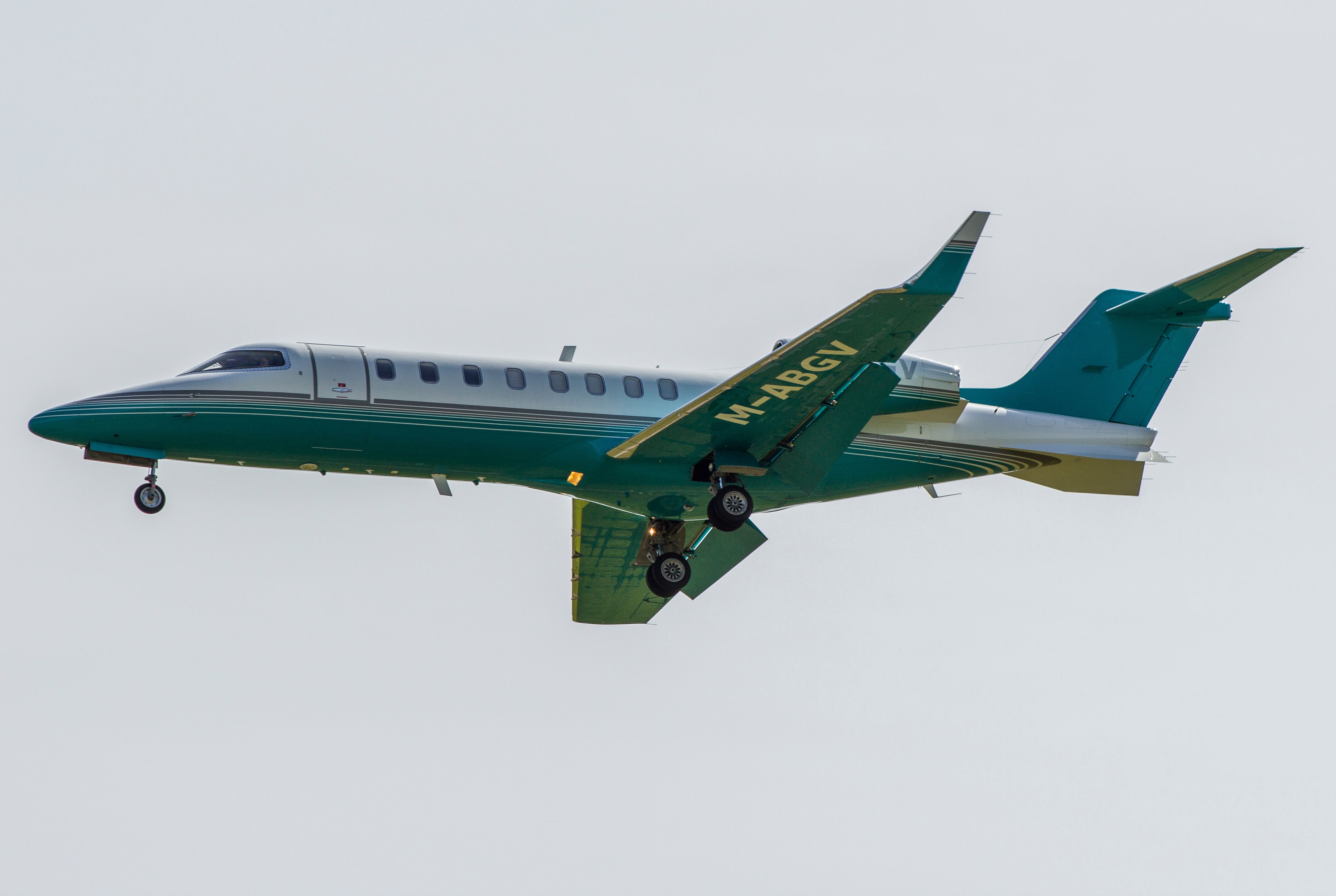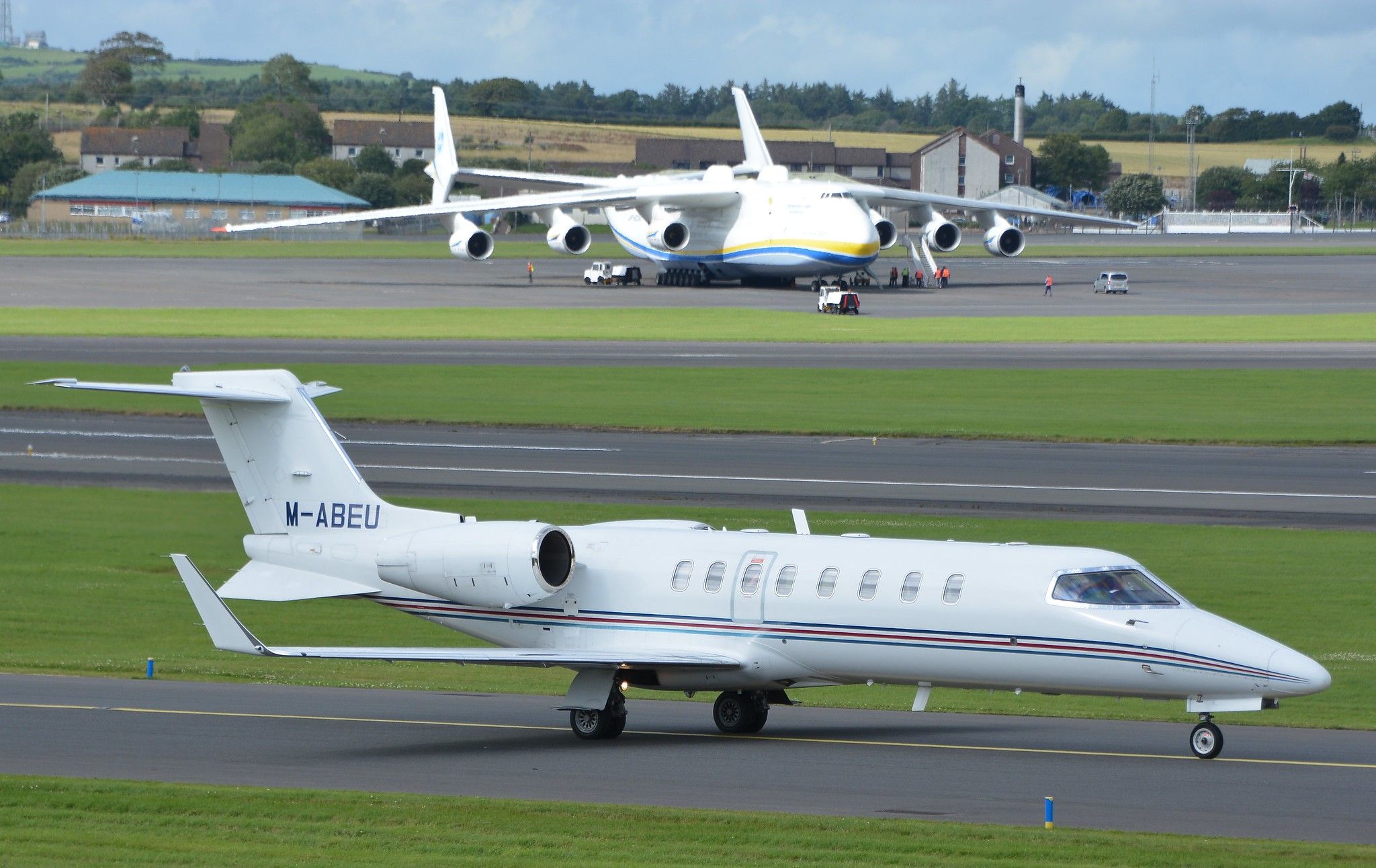Throughout the low-cost world, Irish budget giant Ryanair is well-known for applying a single-type aircraft operating model, with its majority Boeing 737 fleet. Of course, the only major exceptions to this rule are the Airbus A320s belonging to subsidiary Lauda Europe. However, did you know that the carrier’s narrowbody aircraft are also joined by three much smaller Learjet aircraft?
That being said, unfortunately you won’t get to fly these exclusive planes on the airline’s scheduled routes anytime soon, as Ryanair uses its business jets to transport maintenance crew and parts around the network as needed.
Ryanair’s four Learjets
Alongside its huge narrowbody fleet, which currently consists of 553 aircraft across the entire Ryanair Group, the low-cost airline carrier also has four less-known private jets. These are all examples of the Learjet 45, which is a mid-sized private jet with a typical passenger capacity of nine. There is also space for two crew.
Photo: Markus Mainka | Shutterstock
According to fleet data made available by Flightradar24, these aircraft bear the registrations M-ABEU, M-ABGV, M-ABJA, and M-ABRB, with their ages ranging from 11 to 20 years old. The ‘M’ prefix on their registrations indicates that they are registered in the Isle Of Man, with Travel Radar noting that they are leased from a Manx firm by the name of Aviation Leasing (IOM) Limited.
When flying from place to place, these aircraft usually take a Ryanair callsign, but are not painted in the carrier’s livery. To distinguish them from Ryanair’s larger jets, they sometimes (but not always) take callsigns of FR1, FR2, and FR3.
Moving parts and engineers around the network
The Learjet 45 aircraft are based at Ryanair’s primary maintenance hubs, including the UK’s London Stansted Airport (STN). They are regularly used to ship parts and engineering crew around the airline’s network to deal with maintenance and technical issues. They could also be used to reposition flight crew if needed.
Photo: Renatas Repcinskas | Shutterstock
This is a valuable asset when operating the tightly packed flight schedule that following a low-cost business model requires. After all, getting parts out to aircraft quickly is helpful in keeping aircraft operational and minimizing disruption (and associated expenses and compensation). The alternative is to use more local bases or commercial flights to move crew and parts around.
The exact economics of how Ryanair’s use of Learjet 45 aircraft lines up with its commercial options is not made public. However, the fact that the carrier has steadily grown its fleet up to four aircraft suggests it works well on the whole.
The aircraft are in regular use
In any case, these aircraft are well-used, with Flightradar24 showing that three of the four have been active this week. The exception to the rule is M-ABGV, but even this particular aircraft was still active as recently as late October, with its last flight at the time of writing having taken it from Malta to London on October 31st.
As an example of their utilization, let’s conclude by examining the movements of aircraft M-ABRB on November 3rd, 2023. On that day (a Friday), the aircraft started off by flying in the morning from Milan Bergamo (BGY) to London Stansted via Brussels Charleroi (CRL). That afternoon, it returned from London to Bergamo via Billund (BLL), with four-flight days seeming to be fairly standard for these jets.
While we don’t often discuss these non-core parts of airline fleets, Ryanair is not the only airline to operate other aircraft types this way. Feel free to discuss more about these Learjets, or other aircraft, in the comments!
Sources: ch-aviation, Flightradar24, Travel Radar

